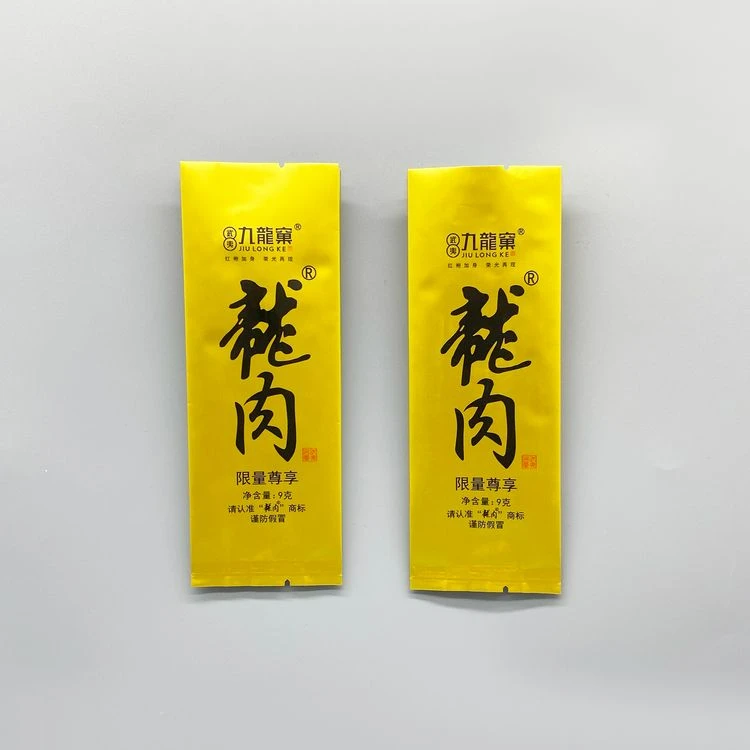Biodegradable bags for packaging have emerged as a pivotal solution addressing the escalating environmental concerns associated with traditional plastic bags. As the global movement towards sustainability intensifies, both consumers and businesses are increasingly investing in eco-friendly alternatives. This shift is not merely a trend but a necessity, with biodegradable packaging leading the charge.

In the current market, biodegradable bags offer numerous advantages, not just for the environment, but also for businesses aiming to enhance their brand reputation and appeal to environmentally conscious consumers. Unlike conventional plastic bags, which can take hundreds of years to decompose, biodegradable bags break down more quickly under natural conditions. This reduction in decomposition time significantly lessens the burden on landfills and contributes to less pollution overall.
From a professional standpoint, it is essential to understand the science behind these revolutionary bags. Most biodegradable packaging is made from materials such as polylactic acid (PLA), polyhydroxyalkanoates (PHA), and starch blends. PLA, derived from corn starch, is one of the most commonly used biodegradable plastics. PHA, on the other hand, is produced by microorganisms and offers a higher temperature tolerance than PLA, which is ideal for various packaging needs. These materials undergo a degradation process wherein microorganisms in the environment break them down into water, carbon dioxide, and biomass. This process is in stark contrast to the protracted decomposition of petrochemical-based plastics.

To illustrate the practical impact of using biodegradable bags for packaging, one can look at case studies of companies that have transitioned to these eco-friendly alternatives. For instance, a leading cosmetics company switched to biodegradable bags for all their product lines. Not only did this move align with their sustainability goals, but it also resonated well with their customer base, resulting in increased sales and customer loyalty. The brand saw a significant uplift in its public image, portraying itself as an environmentally responsible entity. This case study exemplifies how biodegradable bags can serve as a powerful tool in corporate social responsibility initiatives, fostering trust and credibility among consumers.
biodegradable bags for packaging
However,
the shift to biodegradable packaging is not without its challenges. Cost is a primary concern for many businesses, as biodegradable materials can be more expensive than their plastic counterparts. Moreover, the market for biodegradable plastics is still evolving, with occasional discrepancies in product quality and performance. To navigate these challenges, businesses should partner with reputable suppliers who can provide certification and quality assurance for their products. Certifications such as the European EN 13432, the American D6400, or the Australian AS 4736 ensure that products meet the criteria for biodegradability and compostability, thus reinforcing the trustworthiness of the investment.
Increasingly, consumers are looking beyond the product itself to assess the broader ecological impact of a company’s operations. This enhanced interest in sustainability presents an opportunity for companies to differentiate themselves through the adoption of biodegradable packaging. By showcasing transparency in their manufacturing processes and educating consumers about the benefits and proper disposal of biodegradable bags, companies can establish themselves as leaders in sustainability.
Building authoritative content around biodegradable packaging on company websites further enhances SEO efforts and positions businesses as thought leaders in eco-friendly practices. Sharing real-world experiences about the successful implementation of biodegradable packaging, including interviews with experts, case studies, and detailed research findings, boosts credibility and authority. Expert content tailored to address common consumer concerns, such as “How can I properly dispose of biodegradable bags?” or “What are the environmental benefits of biodegradable packaging?” can significantly drive organic traffic through targeted keywords.
In conclusion, the adoption of biodegradable bags for packaging is not just a step towards sustainability but also a strategic business decision. It aligns with consumer dynamics, enhances brand image, and establishes a company as a forward-thinking leader committed to environmental stewardship. By focusing on experience, expertise, authority, and trustworthiness, businesses can not only improve their market position but also contribute meaningfully to global environmental efforts.